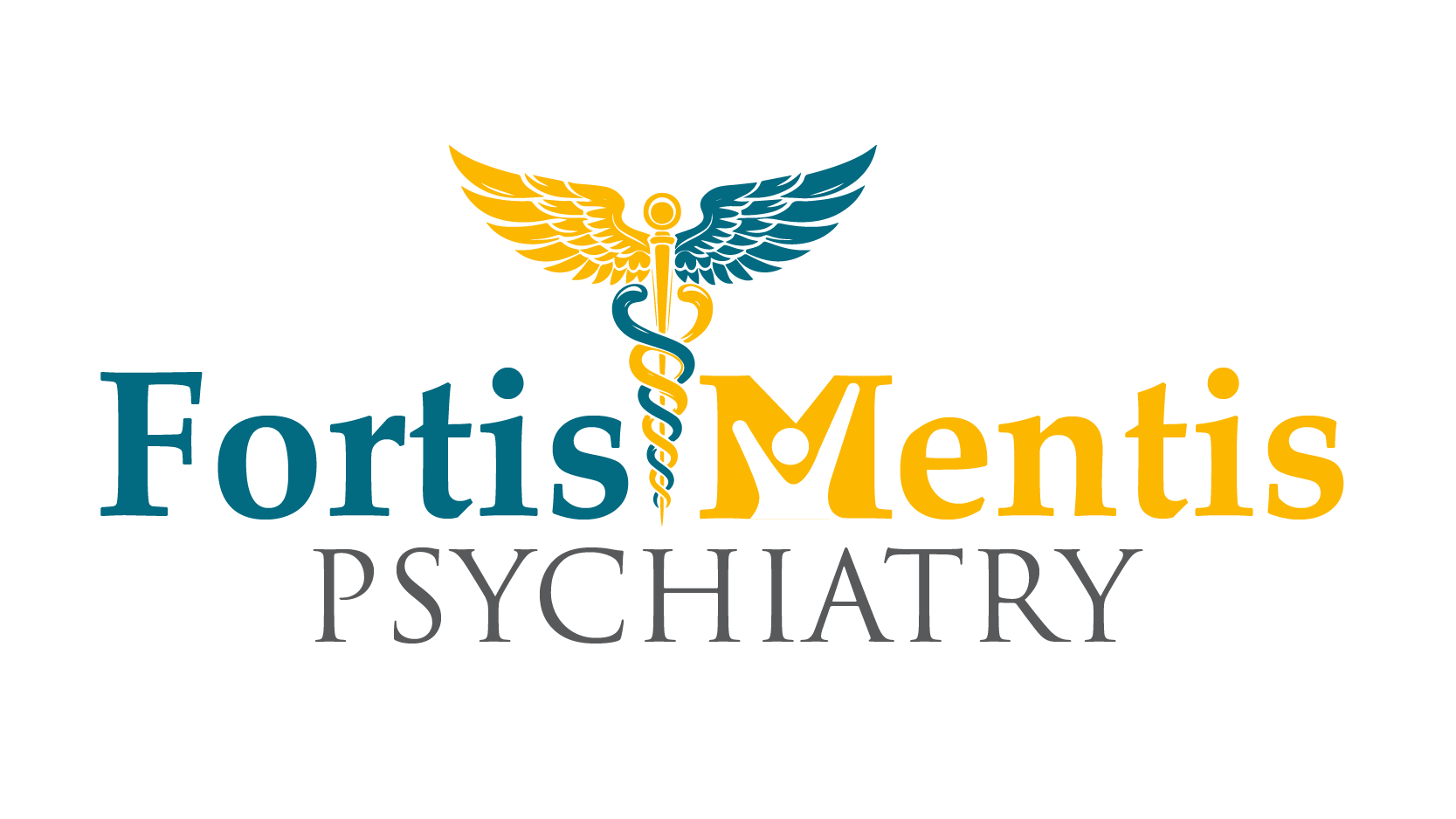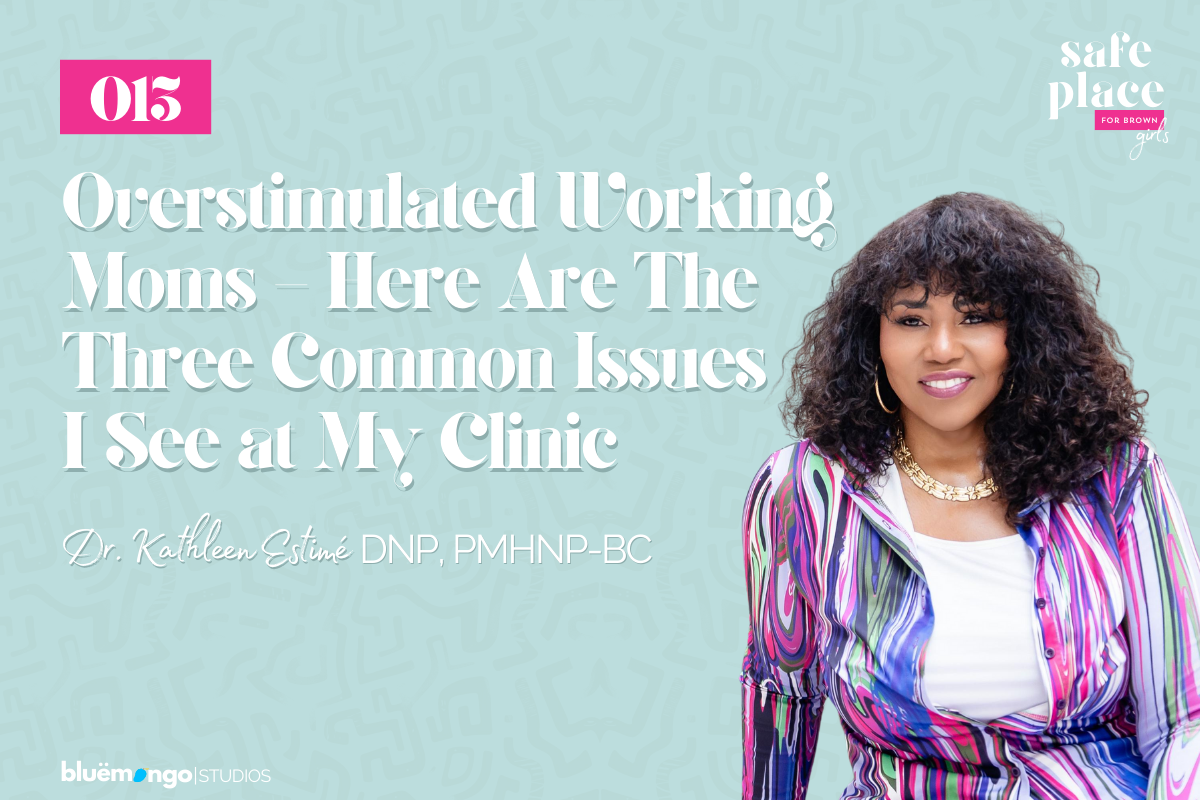You’re standing in the middle of a field filled with dense fog, trying to see if there’s an exit anywhere. But in every direction, all you see are clouds and no clear path forward.
This is the best way to describe mental fog, that draining feeling where you struggle to remember what needs to get done, doubt your ability to do it and question if you even have the strength to start.
I’ve seen this in myself and my practice, especially with moms who are always on edge while trying to make a way for themselves and their children.
The constant stress of daily life often leads overworking moms to experience three common mental illnesses, which are particularly prevalent among women of color.
In this blog post, we’ll explore these three mental health disorders. If you’d rather listen, you can also tune into episode thirteen of the podcast.
More Than Just Worrying: Anxiety Disorder
Anxiety is more than just excessive worrying; it’s a negative thought pattern that can leave you feeling stuck.
The constant tossing and turning from a lack of sleep leaves you in an exhausted mental state, making it hard to even get out of bed.
Anxiety slowly erodes your strength and can leave you in a state that holds you down.
One study I found and discussed in the episode is that 1 in 2 Black women experience anxiety disorder but don’t seek help. Why is this common mental health problem so prevalent?
From my experience and what I have seen in practice, women of color are often under constant pressure to balance their careers with family demands.
If you are in your 30s and 40s, you are more than likely a part of the “sandwich generation,” which refers to adults who are in caring roles for both their children and aging parents.
According to a Harris Poll, a striking 42% of working mothers have been diagnosed with a mental health issue like anxiety or depression, a rate significantly higher than both the general population (28%) and working fathers (35%).
Juggling these two roles while taking care of bills and making a way for yourself can create a perfect storm for chronic stress.
Go listen to episode one of the podcast, you’ll hear my conversation with social worker Katie Stafford. She shares her insights on the silent signs of anxiety in Black women and how to combat them.
When the Drained Feeling Never Lifts: Major Depressive Disorder
Just like anxiety, major depressive disorder can affect the way you think, feel, sleep, and function.
This is another common mental illness I have seen in my practice, and sadly, it’s one our community rarely seeks help for.
Another study I discussed in the podcast episode is that 60% of Black women report symptoms of depression, yet only a fraction receives consistent care.
This is often because depression doesn’t always present as overt sadness. For many women, it manifests in less obvious ways, such as:
- Feeling completely drained even after a full night of rest.
- Losing interest in activities you once enjoyed.
- Increased irritability or anger.
Research from Johns Hopkins Medicine highlights that while women are twice as likely to experience depression as men, Black women are only half as likely to seek help, often feeling the need to project a stereotype of the “Strong Black Woman.”
This can leave them struggling in silence with intrusive thoughts and physical symptoms like headaches or fatigue that are often mistaken for something else.
Dealing with Unhealed Wounds: Trauma-Related Disorders and PTSD
During my time in the military service, I was in an abusive relationship that I kept hidden from the world.
I didn’t realize that being quiet about the abuse would affect my daily life and keep me from healing.
I didn’t give myself that chance to heal from the abuse until I sought therapy. The flashbacks, the worrying, and the intrusive thoughts of what happened to me kept me from living my life and moving forward.
Trauma is a deeply stressful experience that leaves a lasting imprint on the brain and nervous system. It often develops from childhood trauma, sexual assaults, and abusive relationships.
According to research from the National Center for PTSD, women are twice as likely as men to develop PTSD in their lifetime.
This is partly due to the fact that they are more likely to experience certain types of trauma, such as sexual assault, which carries a high risk for developing PTSD.
Symptoms can show up in ways that can be confusing and isolating, including:
- Random, intense flashbacks or nightmares.
- Emotional numbness or feeling “out of it.”
- Being constantly on edge or hypervigilant.
- Avoiding places or people that trigger painful memories.
Because trauma can disrupt the brain’s ability to form healthy relationships, it can make it difficult to trust your current partner or build a healthier relationship with them. The effects are not just psychological—they can be life-altering.
Moving Forward: Your First Step to Healing
You may be experiencing one or more of these mental health disorders and not realize it. Remember, I didn’t even realize I was suffering from depression until I sought help.
This is why I am so passionate about helping others who may be facing the same hidden problems. Feel free to schedule a consultation with me, so you can start your journey in healing.
You don’t have to be in this alone, and I encourage you to reach out. Self-isolation only deepens these struggles, while seeking help is the first step toward a path of connection and healing.

